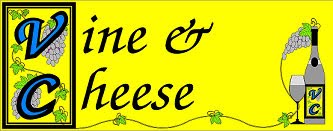Our Friday evening wine tasting this week was punctuated by my occasional insertion of wine terms that were unfamiliar to some in attendance. Here are a few definitions.
"Closed" refers to a red wine that is not showing up to its capabilities usually due to its youth. A closed wine will often open up with decanting and a little time. A "dumb" wine, by contrast, may be a cellared one that is going through a funky period where it is showing poorly only to return to form six months later.
"Vegetal" refers to vegetable flavors in wine, with cabbagy flavors being the most off-putting. Some terroirs like Monterey County California and Chile are known for producing vegetal wines so the soil may contribute to the problem. More often the problem is due to harvesting the grapes too early. Vegetal is recognized within the trade as a flaw but quite frankly I wonder whether those of us who truly like vegetables are really offended by the trait. "Earthy" is different and is not commonly considered to be a flaw.
"Barnyard" refers to an appropriately named stink that is obvious to those in attendance when a red wine is opened. It relates to place in the same way vegetal does. Italian wines often have barnyard; that and the people who stomp the grapes don't wash their feet first. Just kidding, of course. If the smell does not blow off in thirty minutes the wine may have a bacterial infection called "Brettanomyces" which is a problem (unless everyone is congested and can't smell) but it isn't necessarily catastrophic. In fact, "barnyard" in general may be viewed as an asset in that most wines with it are actually very good wines. "Mustiness" is different and often refers to bad cork.
So here's what I'm thinking... As our event was unfolding last night and I offered my observations, I wasn't aware that my language might be cryptic to those in attendance. I am so used to winespeak in the trade, I fell prey to an arrogance (wine snobbery?) that presupposes self over others in a gustatory way, ie., I get overly involved in the tasting experience to the exclusion of others in the room. My bad, I guess.
I am also reminded of wine critic Steven Tanzer's comment about the gestalt of winetasting when he reflected on assigning point ratings to wines (see July 21st blog). Tanzer tries not to dissect a wine in order to tally points for nose, body, finish, etc.; but rather goes for the totality of the wine experience in itself and not the sum of its parts. The gestalt of winetasting may assume an immersion of self into gustatory sensation to the exclusion others in the room. Okay?
Stop in this week, cite the blog, and get a 20% discount on Riedel or Govino stemware which, in a way, relates to the subject of winetasting and gustatory sensation.
Saturday, August 6, 2011
Subscribe to:
Post Comments (Atom)




No comments:
Post a Comment